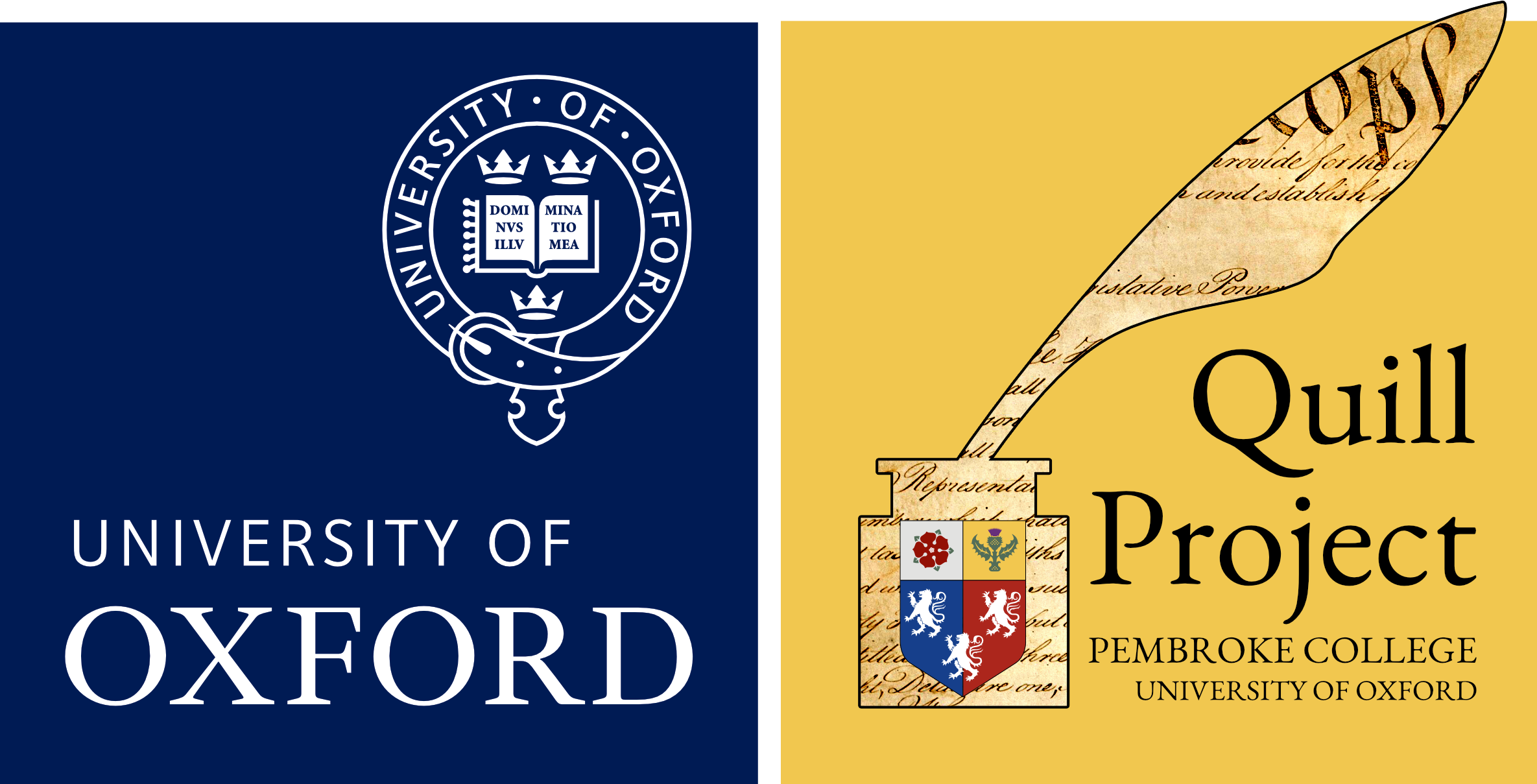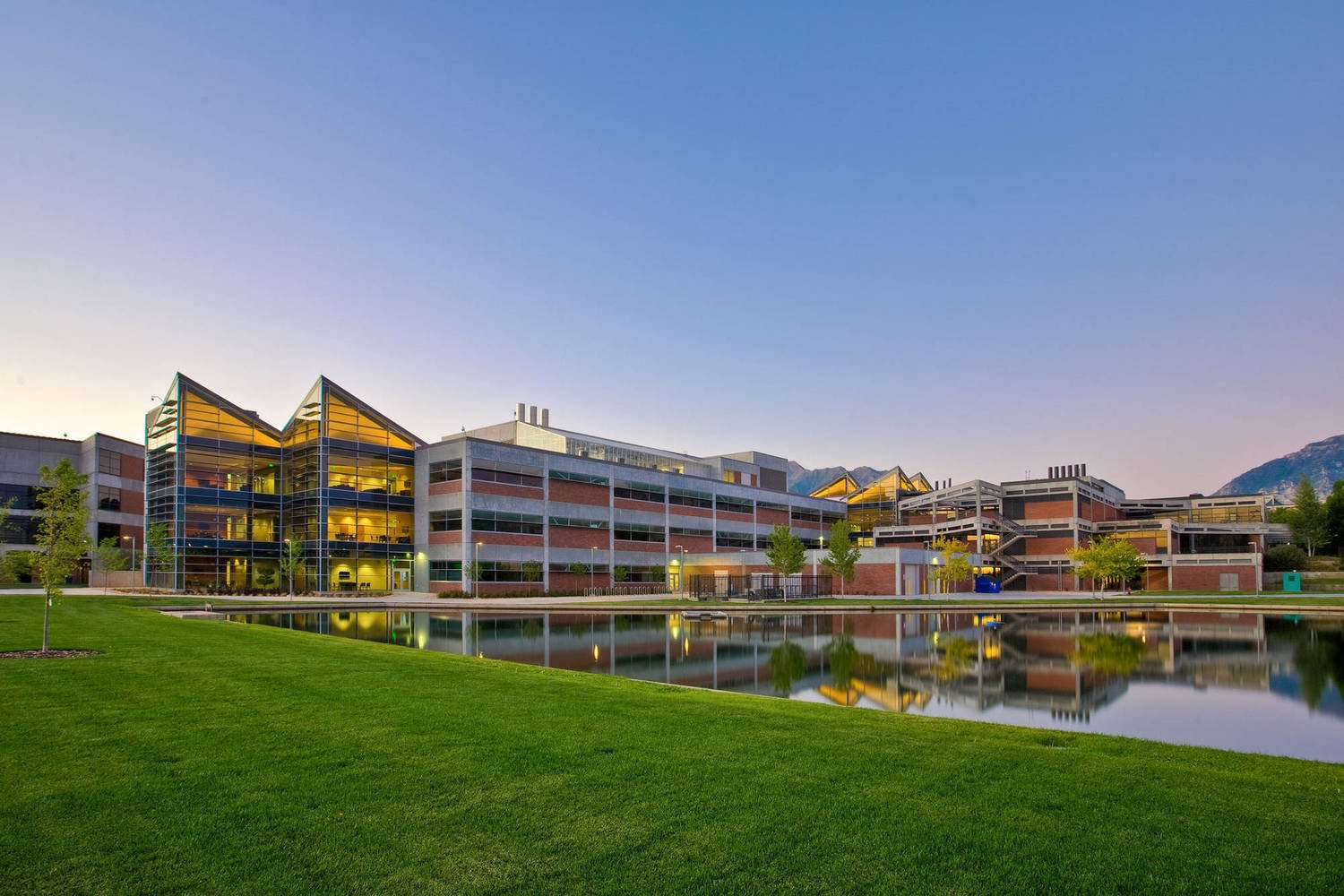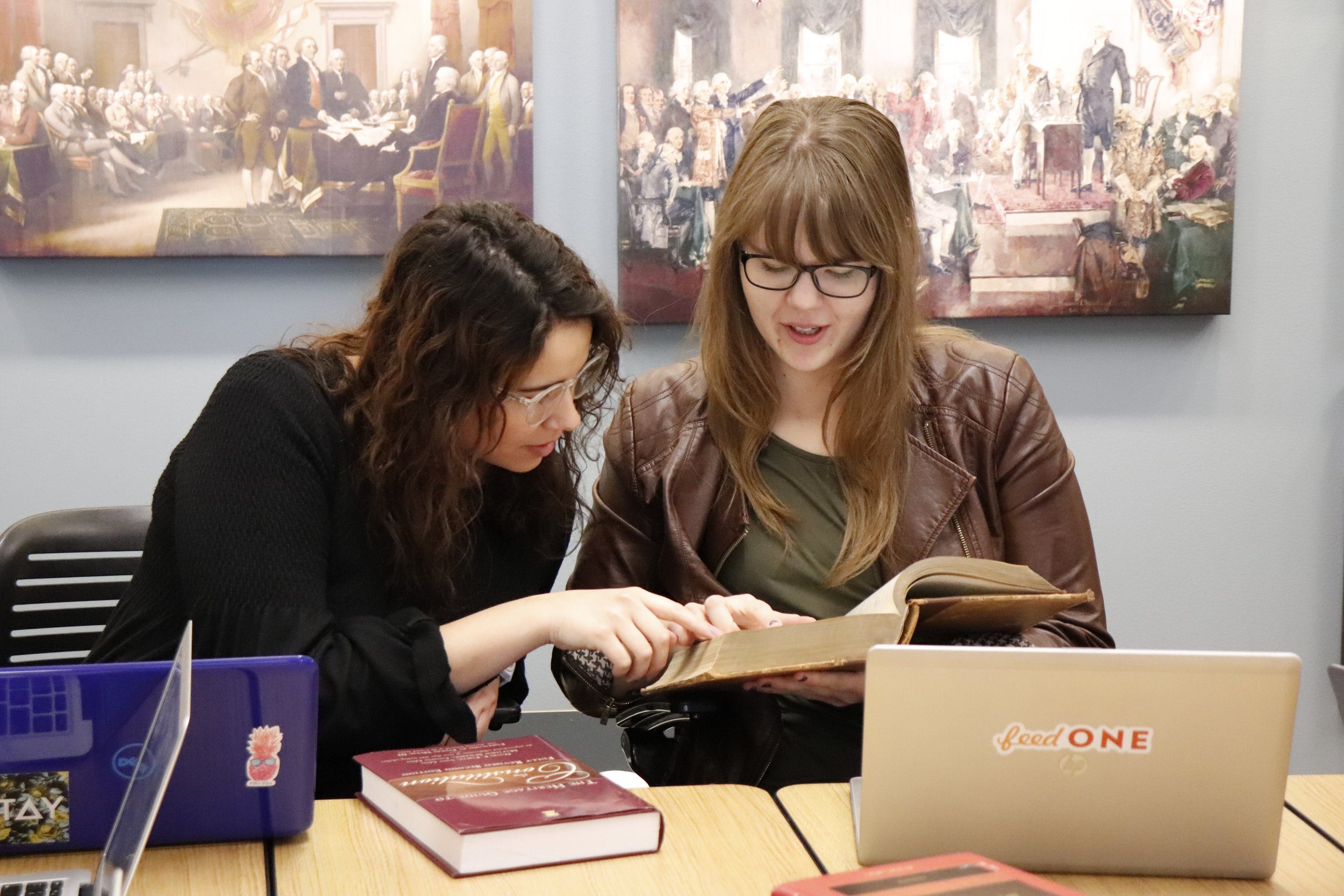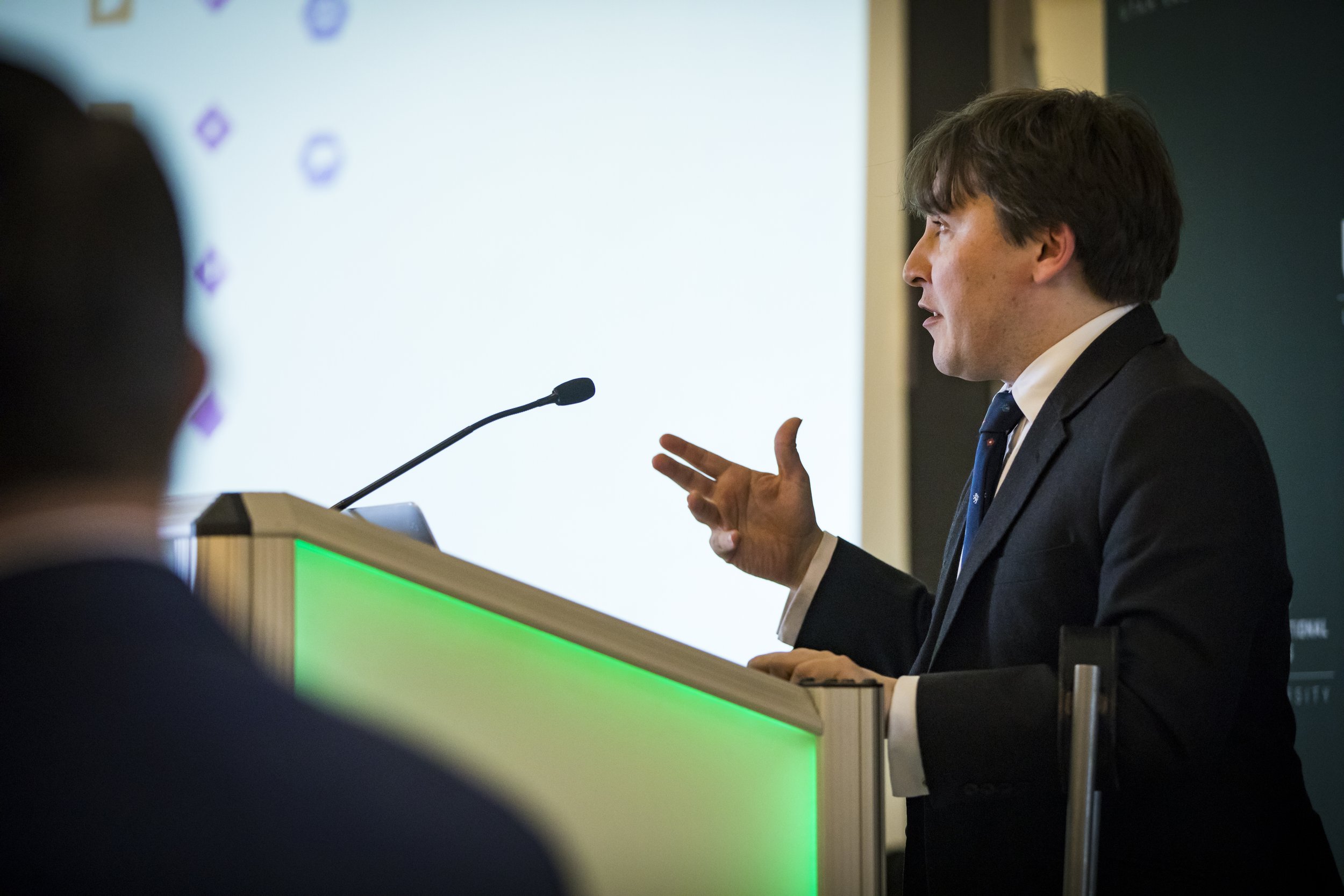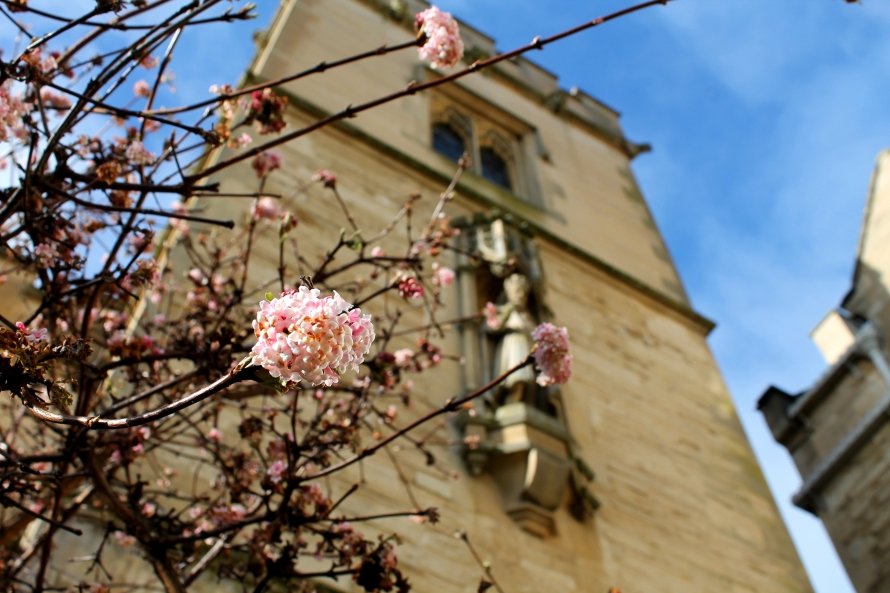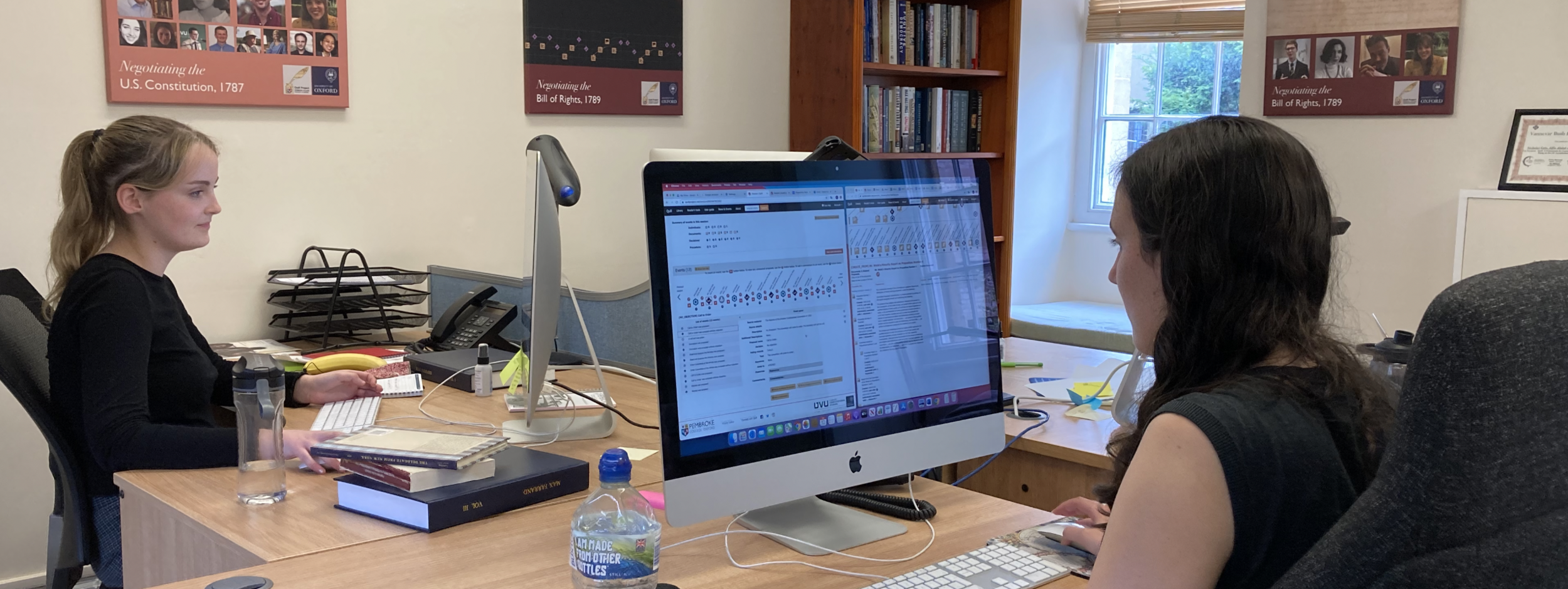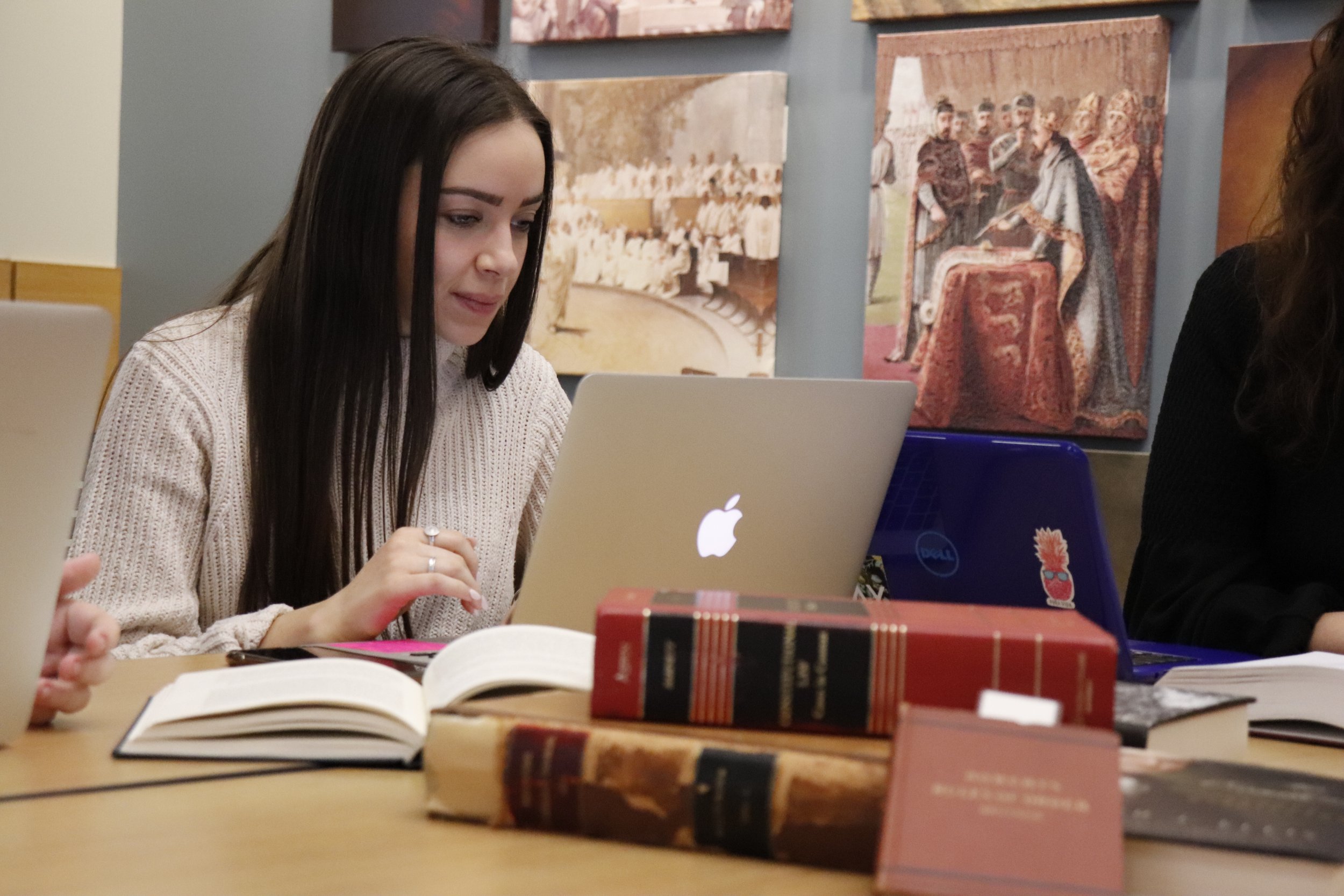International Collaborations
Working in partnership
The ambitious agenda of the Quill Project will only be achieved through partnership and collaborations.
The partnership with Utah Valley University
The Quill Project is a fusion of old and new: foundational principles of democracy and freedom applied to the twenty-first century; archival material presented and analysed using cutting-edge technology; and a strategic partnership between the world’s oldest English-speaking university and one of the newest.
This unlikely partnership arose in part from a personal friendship between the Director of Quill and then-UVU President, Matthew Holland. Holland was keen to expose students to opportunities to learn from research projects and hoped that involvement with Quill would help to provide the recently-opened Center for Constitutional Studies with a clear research agenda. Cole confesses to feeling initially ‘sceptical—but intrigued’ at the idea of using UVU students to test his newly developed platform. In 2015, two students were recruited initially. They were involved in testing the user interface and helping to explore different ways to represent source material within the Quill model. It was tedious and frustrating, but essential. The result was that by the summer of 2016 Cole had created a well-tested platform and methodology which enabled his Oxford team to produce the first proof-of-concept publication: a model of the 1787 negotiations drawn from published sources.
Students and staff at UVU were eager to remain involved with the growing Quill Project, so Cole suggested they have a look at the state archives relating to the constitutional convention held in Utah in 1895. A donor funded paid positions for a team of students, ‘Wood Assistants’ as they became known, and work on the new Utah-based project began. With remote support from Oxford, students carried out archival work as detailed and extensive as many PhD projects, trolling the official records, tracking down newspaper materials, and carrying out the painstaking process of data entry.
In 2019, the Quill edition of the Utah State Constitution was finally published, to the interest of members of the legislature and state supreme court. The publication was to be a landmark moment for UVU’s CCS. It led directly to a prestigious Digital Advancement Grant from the National Endowment of the Humanities to look at Constitution Writing in the American West, and separate, private funding was secured for a second group of students to work with Cole on the congressional debates between 1860 and 1871 that ended slavery and resulted the 13th, 14th and 15th Amendments. Their work was presented at an international conference on the Reconstruction Amendments at Oxford in summer 2022.
The collaboration between UVU and Oxford may have seemed unlikely at first, but has proved incredibly fruitful for both institutions. Oxford’s academic rigour and expertise in digital humanities, combined with UVU’s focus on engaged learning and K-12 education, mean that Quill’s activities and outputs resonate in the academic community while also engaging young people in a truly innovative manner. The core of the project remains its focus on expanding knowledge of constitutional and institutional development, through a combination of traditional archival and editing work and the development of new digital approaches. The surprise has been how integral the work of a diverse group of undergraduates has become: to such an extent that that Quill has adapted this model of using teams of students geographically close to the relevant archives for other material and collaborations.
UVU students participate in an annual study abroad visit to Oxford.
Maintaining oversight: the role of Quill’s documentary editors
One of the distinct challenges of managing a multi-generational, multi-location project such as Quill is maintaining oversight and consistency across the different Quill editions. Since its inception, more than 100 students have now worked as research interns with Quill. Each has entered data into the software platform and made editorial decisions that have affected the publication finally offered to end users. Without rigorous scrutiny of data entry, our outputs would not be trusted as an authoritative source for points of constitutional law and history. It would also be impossible to carry out comparative studies between projects and regions in our portfolio, lessening the value of work completed by academic colleagues and student teams. The essential tasks editorial oversight and consistent application of standards are carried out by Quill’s in-house documentary editors.
The documentary editing team in Oxford oversees the work of 30-40 research assistants and interns each year, based in the U.S., the U.K., and France. They conduct the preparatory work for new projects, assesses the state of the archival material available and set up the projects in the Quill platform. Once a student team is in place, the documentary editors provide training and guidance and act as a first port of call for issues with the platform. Vitally, they also regularly monitor the work of students to pick up on inconsistencies and copyright infringements and conduct extensive pre-publication checks and proofreading. In larger projects, such as at UVU, a student management structure has been developed which delegates some of the training and editorial decisions to student team leaders who meet weekly with the editorial team to discuss issues and problems that may arise.
